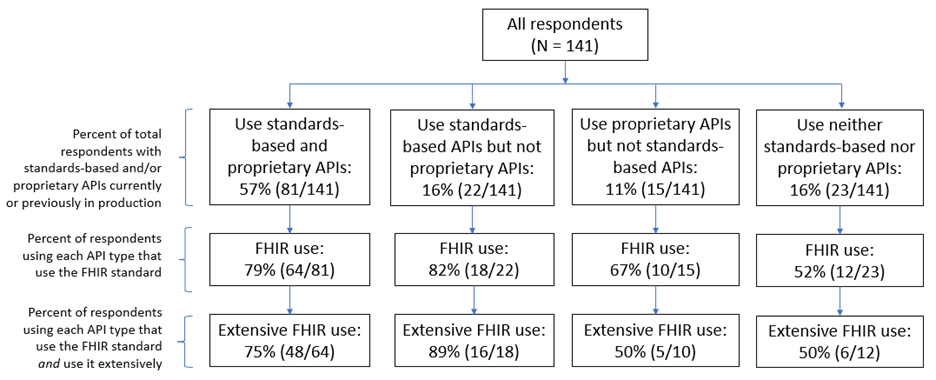
What You Should Know:
– A new survey reveals that the healthcare industry is making significant strides towards interoperability, thanks to the adoption of standards-based application programming interfaces (APIs).
– The research, conducted by the Office of the National Coordinator for Health Information Technology (ONC), reveals that a majority of digital health companies are using the FHIR standard to integrate with electronic health records (EHRs).
The Rise of FHIR
The Cures Act Final Rule mandated the use of FHIR for certified APIs, promoting data standardization and simplifying connectivity between EHRs and third-party applications. The survey data demonstrates that both EHR vendors and digital health companies are complying with these regulations, paving the way for smoother information exchange.
Most Digital Health Companies Embrace Standards-Based APIs for EHR Integration, But Challenges Remain
Key findings of the survey include:
– 73% of surveyed digital health companies use standards-based APIs, primarily the FHIR standard, to integrate with EHRs.
– Companies connecting with multiple EHRs exhibit higher FHIR adoption (75%) compared to those with single EHR integrations (25%).
– Despite widespread adoption, concerns about high fees, lack of testing data, and limited data elements hinder broader API utilization.
– ONC initiatives like Lantern, Inferno, and the recent HTI-1 rule address barriers and expand data access through standardized APIs.
Looking Ahead
This survey offers valuable insights for stakeholders across the healthcare landscape. Developers, providers, and policymakers can leverage these findings to address remaining challenges and accelerate the realization of seamless electronic health information exchange.
